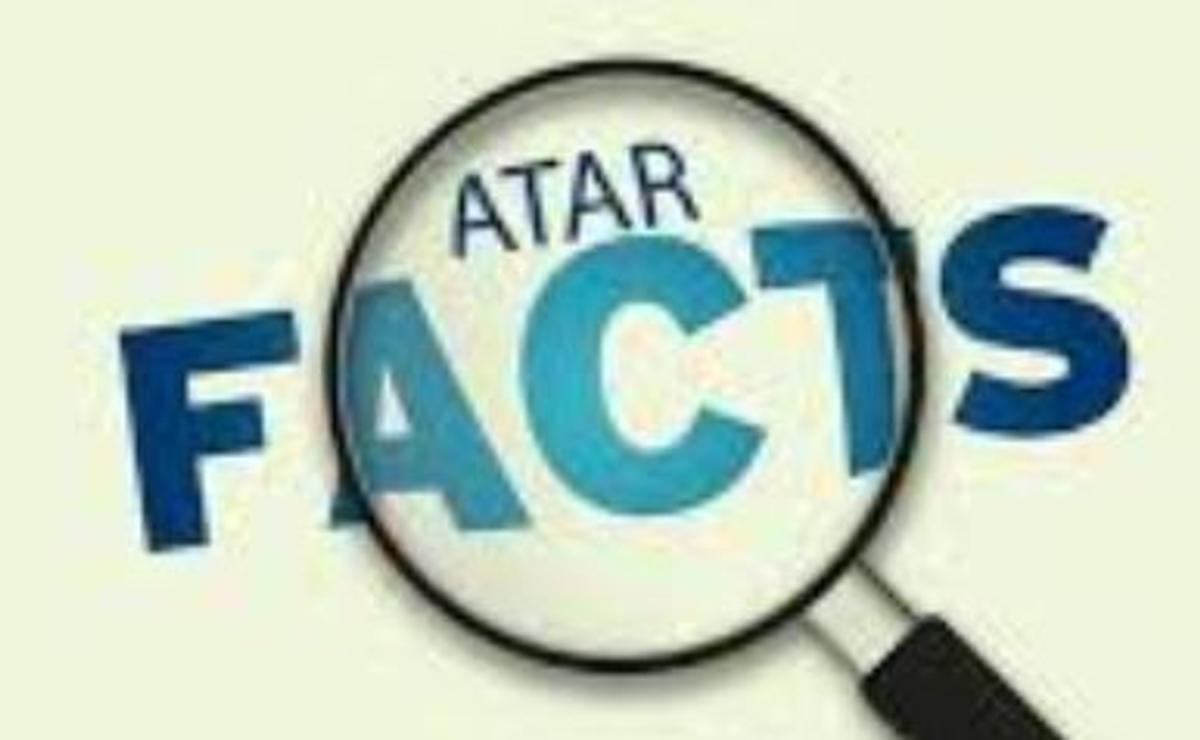Careers and Pathways

Year 10 Work Experience
Welcome back to Mazenod for 2020! Congratulations to those year 10 students who have already returned their completed work experience forms to the College. A reminder to all year 10 students that work experience forms must be returned to Ms. Seremetis by Friday 27th March 2020.
This is the last week of Term 1.
Work Experience dates are Monday 15th – Friday 19th June 2020.
Please note, this is a compulsory 5 day placement program for all year 10 students. If you require a new Work Experience Arrangement Form, please download a form from the College Careers Website: http://www.mazenodcollegeviccareers.com/?page=work-experience
Speaking to a Careers Practitioner
Your career pathway is unique to you. There are many choices available and sometimes identifying your skills or knowing exactly how to achieve your career goals can be difficult. Speaking to someone about your career can be great help with building confidence, recognising your strengths and finding work experience. The people you speak to could be family members, friends, peers, or a professional careers practitioner. If you wish to make an appointment to speak with Ms. Seremetis to discuss your career, subjects, or tertiary studies after year 12, please visit the Careers Office on Mondays, Tuesdays, Thursdays or Fridays or email vseremetis@mazenod.vic.edu.au The Careers Office is located within the Library in the O’Rourke Complex. Best of luck for the 2020 Academic Year!
Mazenod College Careers Website
Mazenod College has a ‘Careers website’ specifically designed for students in years 9-12. You can find the site at: www.mazenodcollegevic.careers.com
The site contains a huge amount of information and should be your first stop when you are looking for information on anything job, careers, university and TAFE related (and there is so much more). I’ll also communicate with students via the site as well as MAZCOM. It has a student login area that allows you to do a number of things once you have created an account.
To get an idea of what is there and what you can do, take a tour by doing the following:
- Go to the site now www.mazenodcollegevic.careers.com On the “Home Page” you will see a few things to note:
A. Video – There is a careers related video that will change from time to time. Some
are quite humorous, some interesting, others just informative, so remember to
periodically check the website to watch them.
B. The Career and Course Finder - The ability to search for courses (University, TAFE,
and Private Providers), scholarships and job information.
C. The Message Board – I will post messages and notices here, so keep an
eye on this as well as your MAZCOM newsfeed.
2. Go to the “Calendar of Events” in the “Important Information” menu. Here you will find
a calendar for the year. I will post important dates and events here. If you want to
receive alerts or reminders of upcoming events, just enter your name and email address.
3. The “Careers Newsletter” under the “Important Information” menu. I will be posting a copy
of the weekly Careers newsletter that is sent to your family’s email address here for student
reference. You can also subscribe to receive a Careers Newsletter at least twice each term.
These will have lots of relevant information, important dates and so on. If you wish to
receive them, just enter your name and email address.
4. Go to the “Workplace Learning” menu. Here you will see a number of pages you can go to,
including Work Experience and Work Placement. There is also a page where you can
download the documents you will need in order to go on Work Experience (Year 10)
or Structured Workplace Learning (VCAL & VET students year 11 & 12).
5. Students and parents are encouraged to take a few minutes to have a look around
the site.
6. Create your own ‘Student Careers Account’. Once you do this, you will have this account
until you leave school.
A. Go to the “For Students” menu, and then down to “Help Videos” and watch as required
(make sure you have headphones).
B. Now click on the “Students’ Secure Area” in the “For Students” menu – this will open
a page where you can create your account (and in future, it is where you will login
to your account).
C. Click on the “Registration” tab and enter your details:
- Your First Name and Last Name
- Your email address – NOTE: use your school email address (it also becomes your login username).
- Create a Password for yourself (you’ll need to type it in twice)
- Select which year you are currently in
D. Click the “Register” button – your account is now created and you can login –
BIG NOTE: Please write down your username and password now
(it will be displayed on this page). Save it somewhere safe such as your student diary.
E. Now go back to the Student Login page again and log in with your details. Have a look at
the various things that you can do!
ATAR Fast Facts
If you’re starting senior school this year and aren’t sure what all the fuss about the ATAR is, don’t worry.
It can be a confusing system, so we’ve broken down some of the common facts and misconceptions about the ATAR to help you understand.
- Your ATAR remains valid for life but is not the sole criteria for entry into University study. You can use it to apply to study at university regardless of your age, provided it meets the entry requirements for your course.
- The national median ATAR is around 70.00 but changes every year. That’s because the averages in each state varies too.
- Your ATAR is a nationally recognised number, so if you live in Victoria and your ATAR is 85.00, it’ll be the same no matter which state you apply to study in.
- Approximately 30% of students enter university by alternative pathways (no ATAR and/or other qualifications such as TAFE Certificates, Diplomas, Advanced Diplomas and employment experience). While University may be a goal for many students after completing Year 12, it may not be for everyone! Research your options carefully and look at courses that teach you current employability skills that employers seek today – research TAFE and VET options!
- Getting a low ATAR isn’t the end of the world. These days, universities and other tertiary institutions offer lots of alternative pathways to get in.
- You can still change your preferences after you receive your ATAR results, so if you’ve scored lower or higher than expected you’ve a chance to adjust your preferences to reflect that.
- You can’t waste an ATAR – if you score 99.95 and choose to study a course with an entry requirement of 80.00 because it’s your top choice, go with it. Scoring a high ATAR simply means there are more courses that you’re eligible to apply for, you’ll have more options.
- No ATAR – no problem. Studying VET and other tertiary qualifications don’t necessarily require you to have an ATAR, they provide nationally recognised qualifications and some universities will accept them as eligibility (sometimes even credit towards first year studies) if you’d like to apply for a university course in future.
- Once you’ve got into university or another tertiary institution, nobody is likely to ask what your ATAR was again, let alone use it as criteria for course or job selection.
- You aren’t defined by your ATAR and your opportunities in life won’t be limited by that number. You may have to take a different pathway to the one you’d originally planned, and it may take a little longer is all.
- Using online “ATAR calculators” aren’t accurate, as scaling changes every year, so don’t take the results as gospel.
- Studying more units could potentially get you a higher ATAR (if you apply yourself to all subjects the same), as admission centres select e.g. English and 3 of your best results to calculate you aggregate score, which determines your rank position.
- Taking advanced subjects doesn’t mean you’ll get a higher ATAR, only the amount of work and effort you put in can do that.
Need more information about the ATAR? Speak with Mr Mark Rolfe, VCE Coordinator or Ms Seremetis, Careers Coordinator.
Holmesglen Open Days
Holmesglen open days occur on Thursdays throughout the year at all campuses. Sessions vary in length from 30minutes to 90minutes. Students and parents are encouraged to book their attendance for open days via the Holmesglen website. Click on the open day link https://holmesglen.edu.au/Students/Open-Days/ select your study area and book a session.
The dates for Holmesglen 2020 open days are listed below.
- 12 March
- 7 May
- 18 June
- 6 August
- 10 September
- 15 October
- 26 November
Note: the full 2020 Open Day schedule will be distributed in mid-term 2. Open Days for most institutions typically occur in the month of August. Students in years 10, 11 and 12 are encouraged to attend at least one open day in each of these senior school years.
Occupational Therapist
What do they do?
Occupational Therapists (OTs) are qualified health professionals who work with people of all ages if they’ve been sick, injured or disabled. OTs help their patients to adapt, develop or improve abilities that allow them to participate better in all aspects of life, e.g. daily tasks, self-care, working and volunteering, as well as participation in hobbies, interests and social events.
OTs might work in hospitals, specialist clinics or private offices, schools, care facilities, or out in the community.
People who enjoy helping, are patient, good problem solvers and great with people from all walks of life could suit a career as an OT.
Duties:
- conduct tests and assess patients’ capabilities (mental, physical, developmental etc.)
- develop, plan and implement treatment programs to improve affected movements or functions
- monitor and report on patients progress and help with the coordination of other services that might be needed
- helping children with special needs or disabilities to be integrated into education programs in schools
- assessing employees who’ve been injured or sick, help them return to work or find alternative duties they might be able to do
- assess home and work environments to find problem areas and develop solutions
- design and modify everyday environment of clients to allow for better access and independence
- recommend and advise on the use of specialised equipment
- assess the need for, develop and run health education programs including workplace health and safety
- act as consultants to industry and government organisations, insurers, medical practitioners and employers
- undertake research
- teach in academic institutions, generally at tertiary level
- assist with policy development for health and other areas.
Skills required:
- Patient, compassionate and empathetic
- Creative and good at problem solving
- Organised, great at time management with a flexible attitude
- Practical, fit, and observant
- Excellent interpersonal and communication skills
- Enthusiastic and a good motivator
Pathways
Complete a Certificate IV in Allied Health Assistance (12 months course available at a range of institutions such as Holmesglen Moorabbin) qualification, and you could be qualified as an Occupation Therapy Assistant or Aide, and gain valuable work experience to help you decide if a career in OT is for you. Credits may count towards a degree.
Complete a 4-year Bachelor’s Degree in Occupational Therapy. (Providers include ACU and Monash University).
Or, study an undergraduate degree in any field, then complete a Master of Science in Occupational Therapy (check for prerequisite modules you’ll need to complete during your Bachelors). This pathway would generally take 5 to 5 ½ years. (Providers include La Trobe University and Swinburne University)
Once you’re qualified, you’ll need to register with the Occupational Therapy Board of Australia before you can start work.
Average salary $81,000 per year
Job growth in this area is predicted to be strong.
(Source: www.joboutlook.gov.au )
Ms Vivian Seremetis
Careers Coordinator







